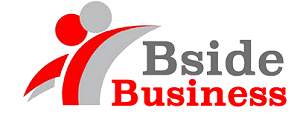Is Invoicing a Part of CRM or not?

Customer Relationship Management (CRM) is a critical business plan that focuses on construction and maintaining connections accompanying customers. It contains the use of technology to establish, automate, and synchronize undertakings, marketing, helpline, and mechanics support. While CRM primarily deals with directing interactions with consumers and prospects, invoicing plays a significant function in the overall process.
In this article, we will investigate the relationship between services and CRM to determine if invoicing is a CRM or not.
Understanding CRM
CRM systems are created to streamline the customer journey from purchase to retention. They provide a focused platform for pursuing customer interactions, directing sales pipelines, and analyzing consumer data to enhance administration.
CRM software enables trades to store customer information, such as contact details, purchase experiences, and preferences, in one place for smooth access and reference.
The Role of Invoicing in CRM
Invoicing is a detracting component of the sales process that involves advertising customers for products or duties rendered. While making invoices with invoicing software is not ordinarily considered a part of CRM, it is carefully linked to client interactions and plays a crucial function in maintaining strong client relationships.
Here are some habits in which invoicing intersects with CRM
· Revenue Tracking
Invoicing is essential for tracking revenue and listening to sales efficiency. By integrating invoicing functionalities into CRM arrangements, businesses can gain insights into profit generation, track fee statuses, and analyze sales styles. This helps businesses make cognizant decisions to help their bottom line.
· Customer Insights
Invoicing data specifies valuable insights into customer conduct, preferences, and buying patterns. By connecting invoicing information accompanying CRM data, businesses can evolve targeted shopping campaigns, customize products or aids, and enhance customer occurrence based on individual preferences.
· Payment Integration
Integrating services capabilities within CRM structures streamlines the payment process and enhances the overall client experience. By automating tabulate workflows, businesses can send invoices immediately, track payments in evident-time, and provide consumers with convenient fee options, such as connected to internet payments or recurring advertising.
· Relationship Building
Timely and accurate tabulation is essential for building trust and credibility accompanying customers. By sending professional invoices immediately and addressing any advertising inquiries promptly, trades demonstrate their commitment to client satisfaction, which can strengthen overall customer friendship.
Is Invoicing Part of CRM?
While invoicing is not traditionally deliberate a core component of CRM, it plays a crucial duty in supporting the overall customer connection management process. By integrating invoicing functionalities into CRM systems, trades can leverage invoicing data to gain deeper insights into customer presence, track revenue, organize payment processes, and enhance client relationships. Get information about the best accounting software for small business.
Conclusion
While invoicing and CRM have different purposes, they pertain to the broader context of directing customer interactions and forceful business growth. Businesses can benefit from joining their invoicing processes with their CRM method to create a seamless consumer experience and increase operational adeptness.
Integrating invoicing into CRM can help trades better understand customer needs, help communication, and ultimately drive general customer loyalty and delight.











